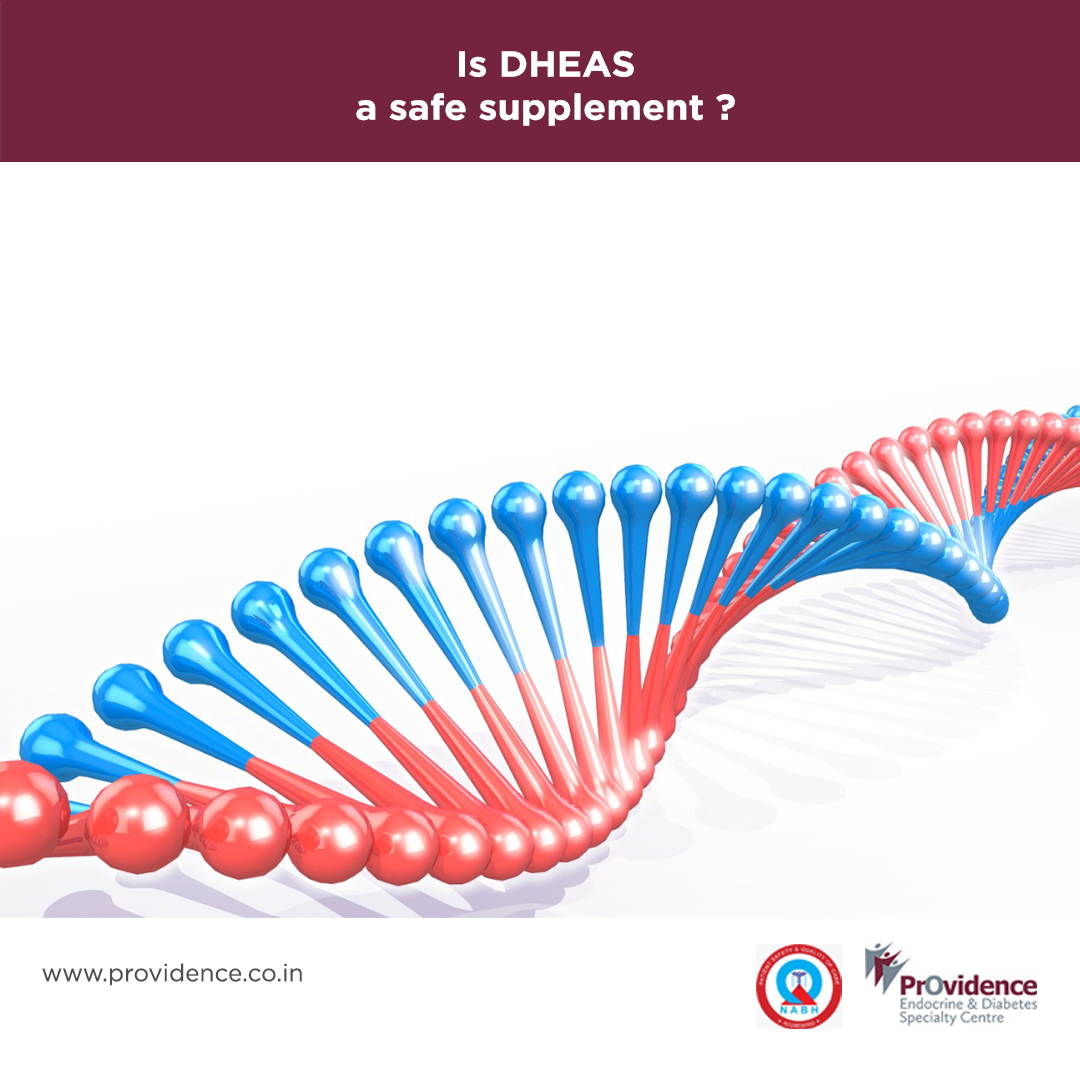Dehydroepiandrosterone (DHEA) is a hormone produced in the adrenal gland and helps to produce sex hormones, including testosterone and estrogen. Natural DHEA levels peak in early adulthood and slowly fall as you age.
A synthetic version of DHEA is available in tablet, capsule, powder, topical cream, and gel forms. These are considered health supplements and not therapeutic medicines. People use DHEA as an anti-aging therapy, for infertility, to improve physical performance, and to treat depression and menopausal issues.
As an anti-aging medicine and for enhancing performance, no significant data supports its use. The National Collegiate Athletic Association has banned DHEA use among athletes.
In women with primary adrenal insufficiency, less DHEA is produced by the adrenal. So, it is recommended as a replacement to improve libido. There is limited long-term scientific information that supports its use. DHEA is extensively used in infertility treatment to improve the quality of eggs and to help implantation. However, there is no substantial evidence to support its regular use.
DHEA can increase the levels of androgens and has steroidal effects. Hence, DHEA might increase the risk of cancers like prostate, breast, and ovaries. Further, DHEA can cause acne, oily skin, and increased hair loss. Avoid using DHEA if you’re pregnant or breastfeeding and when you are on multiple other medicines, as there can be drug interactions.
There is little evidence for using DHEA, and reputable organizations like the Mayo Clinic advise against DHEA supplements. They have limited evidence for benefit and have the potential to cause unwanted side effects. Talk to your healthcare provider if you are thinking of taking these supplements.
Dr. Deepa G, MHSc (Diab), Dip (Diab)



